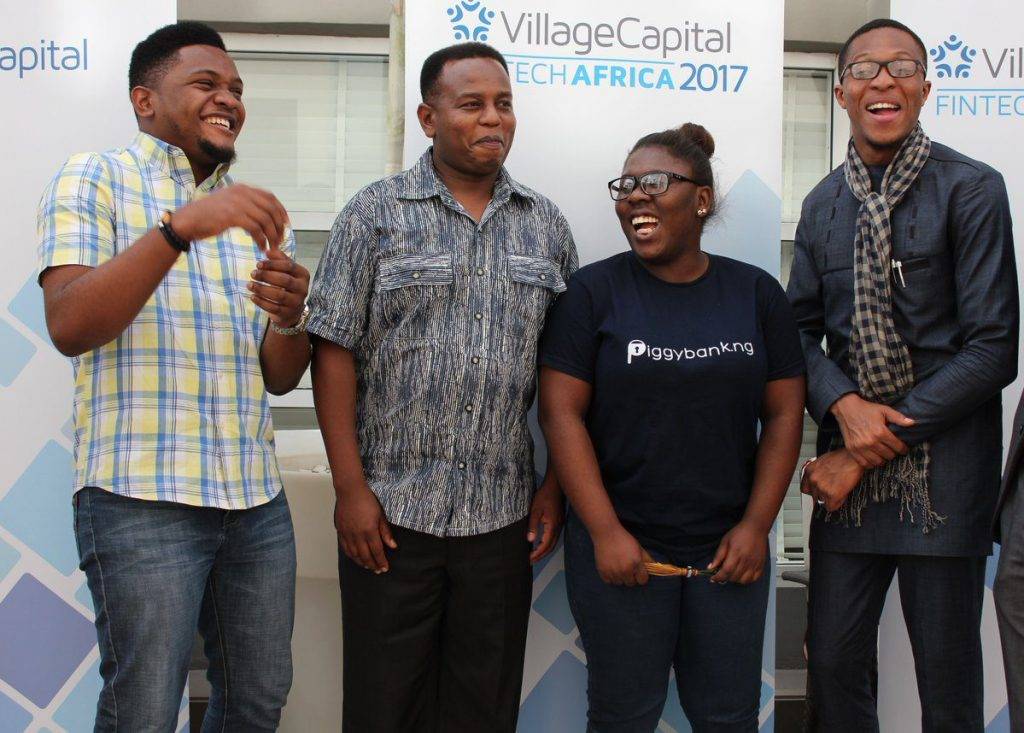No Job Offers Despite First Class, Two Botched Businesses – This ‘Superhero’ Has Now Helped People Save USD 15 Mn In 2 Years

Odunayo Eweniyi graduated with a first class in Computer Engineering but was unable to land a job due to the biting unemployment problem in Nigeria. She hooked up with ex-coursemates to launch businesses and after two failed attempts, they launched a platform that has helped Nigerians save up to USD 15 Mn. But that was after they had to shut it down twice.
When Odunayo Eweniyi graduated from Covenant University – one of Nigeria’s most prestigious private tertiary educational institutions – back in 2013, it was amidst much fanfare. And it ought to have been so.
The then 20-year-old had not only pulled off a remarkable feat by going all the way in a turf that many females would rather not tread, but she had also bossed things – bagging a first class in Computer Engineering.
But as convocation day soon came and went, so did the euphoria of her academic accomplishments fade, mostly because reality began to set in. As she reveled in the admiration of all and sundry on that day when she wore those robes and held that scroll, she must have basked in the knowledge of the possibilities that were going to open up to her with regards to job opportunities.

Well, guess what? She was wrong. Contrary to popular opinion, graduating summa cum laude doesn’t exactly make things easier for a fresh job market entrant in a country like Nigeria where youth unemployment is a problem that has only grown to worrying levels over the years.
Just like that, the Oyo State-native had joined the seemingly unending queue of jobseekers in the country who are anxiously on the lookout for what employment opportunities they can find.
Several CV submissions and interviews later, still no luck. Nothing had panned out for her. The wait was frustrating and this saw her eventually leave her home to live with an aunt who’s place was located in an area that had more “job appeal.”
That move from her home was actually the first step in a journey that has seen the now 26-year-old become one of Nigeria’s youngest and most-promising female tech entrepreneurs.
In the last couple of years, she’s become something of a superhero – not clad in a cape, alright, but making big saves all the same. To date, Eweniyi has helped Nigerians save up to USD 15 Mn through a number of tech-enabled platforms.
Once she moved in with her aunt, she continued with the often frustrating job hunt that had more or less become her life. She was at it when a chance encounter saw her reunite with two of her former colleagues at the university.
The duo were also bright prospects who had also suffered the unsavoury fate of being shuttlecocks in this game of ‘job hunting badminton’, and having failed to land any breakthroughs, they were actively working on starting something of their own.

The team asked Eweniyi to come aboard their project which was about setting up a discount card platform business. Having hit a brick wall in her own pursuits, she saw no harm in joining the team. At the very least, she would be busy.
The trio kickstarted the project but things went south barely four months in. The idea had failed and the platform ultimately shut down. Then, they went at it again, launching a platform that managed a database of pre-screened candidates suitable for employment. This second attempt – still existing as an upgraded platform called PushCV – didn’t amount to much at the time either.
Third time’s the charm? Well, it sure looks like it. And that’s because, at the third time of asking, they launched another platform which proved the cash cow. Launched in December 2015, the platform now known as PiggyVest (also known as Piggybank.ng) has since grown into a million-dollar company.
“On social media, there was a lady who had been saving all through 2015 NGN 100.00 (USD 0.27) every day, inside a box. So she broke that box on December 21 and she had NGN 35 K (USD 97.00) in that box,” Eweniyi says.
That’s pretty much how the inspiration for the micro-savings platform came about; the need to help people create a sustainable means of saving.
But as the saying goes, even the best-laid plans of man and mice often go awry. This new platform was coming with the best of intentions but that didn’t make the ride any less bumpy.
Shortly after inception, the business, unfortunately, had to be shut down because of conflict between regulatory rules and microfinance. Once they found a regulatory partner, they staged a comeback.
However, the light had to be put off once again because of the need to implement security software on the platform. Only a couple of months in and there had already been two blackouts; not a good look for any business. Everything screamed; “give up on it and close up shop for good!”
But Odunayo and her colleagues used the downtime to regroup and make yet another comeback. In April 2016, the business was up and running again but the paucity of funds meant a lot of work for too few people. Quite challenging.
At one point, bootstrapping meant Eweniyi was handling the demands of social media, the company’s finances, technology inputs, and many other things. She recalls that no one thought the product was ever going to amount to something.

Fast forward to 2017 and people began to warm up to the idea as the security software of the platform was now operating better. The customer base grew as users were rewarded for bringing more clients onto the platform, instead of spending money on advertisers (money that wasn’t even available), and the app quickly gained traction.
As things got better, more growth opportunities began to pop up. Piggyvest eventually agreed to terms with United Bank for Africa – one of Nigeria’s foremost financial institutions owned by business mogul and entrepreneurship advocate, Tony Elumelu.
The platform became a microfinance partner of the financial institution and launched a SafeLock feature which allows users to stash an amount of money for a specific period of time without having any access to it until that time is up. Users are also able to earn interest upfront.
By the end of 2017, the platform had managed to save NGN 683 Mn (USD 1.8 Mn) and in March 2018, they were able to raise an additional USD 1 Mn. That money was put into purchasing a unique microfinance license for the company and it’s been a steady rise from there.
In the later parts of 2018, Eweniyi and her team incorporated into their offering, a health insurance service at a lower cost than the average insurance company. This new platform already has 185,000 users and counting.
The business has since won a number of awards including the 2018 Future Awards Africa Prize in Technology, Business Day Top 100 SMEs, and the 2017 Village Capital Fintech.
On her part, Eweniyi was part of the World Women in FinTech Power list for 2017 and the yNaija Most Influential People in Technology in 2017 and 2018. Early this year, she earned a spot on Forbes’ list of 20 New Wealth Creators On The African Continent, gaining recognition as a creator of one of the “Businesses Of The Future.”
Having seen her quest to land a decent job on the backs of her excellent qualifications amount to nothing, she’s now keen on creating wealth and helping people do the same instead of just tapping from it.
The last six years have undoubtedly been a rollercoaster but Eweniyi’s story exemplifies the remarkable things that can happen when one takes the initiative amidst so many disappointments and remains resilient in spite of setbacks.
Featured Image Courtesy: techwomenlagos.com